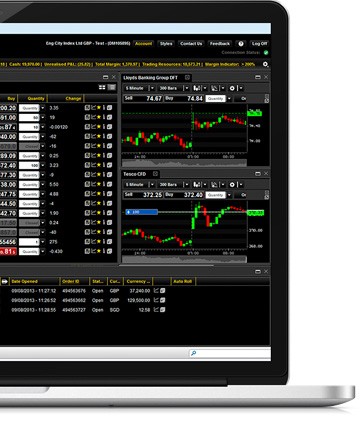CFD Spread Betting
Post on: 16 Март, 2015 No Comment

C FD (contract for differences) spread betting is different than financial spread betting. The difference between CFD and financial spread betting is not only the fact that with CFD you have to pay tax while in financial spread betting you don’t. It’s also the way you “play the game”.
CFD stands for contract for difference which no limit margin is trading which much like financial spread betting uses leverage as the way of making money. Much like financial spread betting the idea is to call short or long against the market’s current value and win if it’s going up or down. You have to pay at least 1% as a security for the investment.
Many companies offer CFD as well as financial spread betting, while the first time resemble real trading and has no time limit (CFD are automatically renewed at the end of the trading day), financial spread betting is limited in time. Both share the stop loss feature which protects against unlimited losses in case the investment went the wrong way around for the gambler. To learn more, you should read the trading guide and improve your spread bets.
The difference between CFD and real share and stock trading is that you don’t actually own the stock or share, you simply place “bets” on it while in real life trading you have to have enough money to own the value of the share or stock. An example to CFD spread betting would be: Google inc. is quoted in the market at $340/341. You think the price is due to rise, and decide to buy 100 shares as a CFD at $342, the offer price. Your initial outlay is just 10% x 100 shares x $342 = $3,420. The same outlay with a regular stockbroker would only give you exposure to the performance of 100 shares. The usual commission rate on this transaction is just 0.1% or $34 (100 shares x $342 x 0.1%). This is the opening position. The closing position would be for example:
Closing the position
A month later Google inc has climbed to $400/401 in the market & you decide to take your profit. You sell 100 shares at $400, the bid price. The commission payable is $40 (100 shares x $400 x 0.1%). Your gross Profit on the trade is calculated as follows:
Closing level $400
Opening level $342
Difference 0.58
Gross profit on trade $0.58 x 10,000 shares = $5,800
Of course we should add the tax to the gross profit and any other commission before the money gets to the bank, it’s still a nice profit to make in 1 month.
So CFD spread betting is similar to financial spread betting but not exactly the same. If you want no limitation on your betting and tax free trading you should choose financial spread betting. If you want to feel what real trading is all about, CFD is for you.














